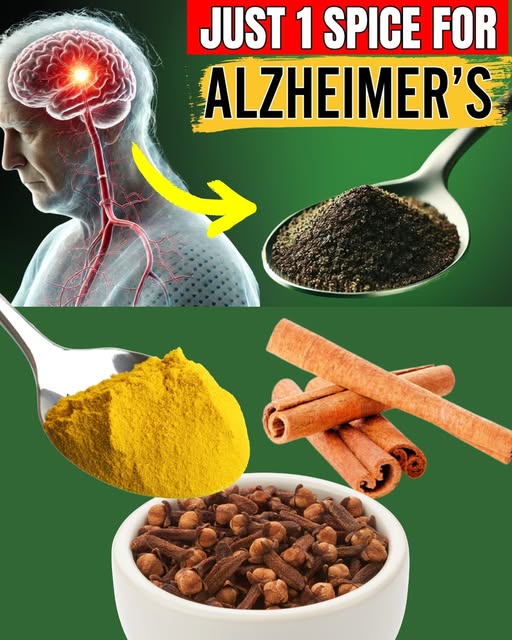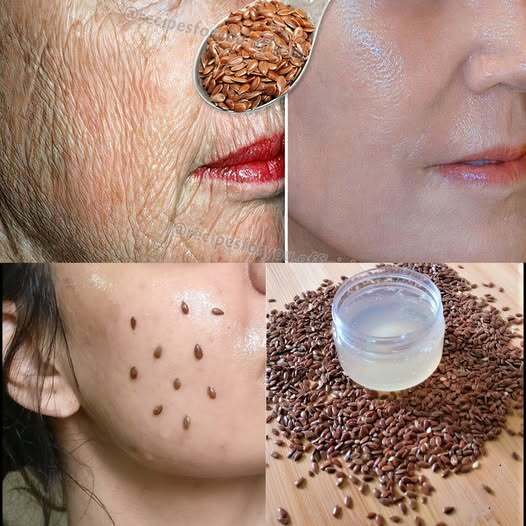Introduction: The Shocking Link Between Your Spice Rack and Brain Health

What if the secret to preventing Alzheimer’s and dementia was sitting right on your kitchen shelf?
As the world population ages, Alzheimer’s disease and dementia have become more than medical challenges—they’re global concerns. Over 55 million people live with dementia worldwide, and that number is expected to double every 20 years. While modern medicine offers limited treatment, emerging research reveals that prevention may begin with the everyday choices we make—starting with what we eat.
You’ve heard about turmeric and maybe even cinnamon. But what if we told you there’s one surprising spice that’s showing powerful promise in preventing Alzheimer’s and protecting your brain after 50—and it’s not what you think?
In this article, we’ll uncover the mystery spice, dive into the science, bust common myths, and show you how one simple daily habit could dramatically reduce your risk of cognitive decline. Ready to unlock this secret?
Let’s begin.
The Mystery Spice That May Prevent Alzheimer’s: SAGE
That’s right—sage.
Often used to flavor stuffing or roasted dishes during the holidays, sage has been largely overlooked in the conversation around brain health. But recent scientific studies are placing this aromatic herb at the center of Alzheimer’s prevention.
Sage (Salvia officinalis), a member of the mint family, is more than a flavorful addition to your dinner plate. It contains powerful compounds that affect memory, focus, and cognitive clarity.
The Science: How Sage Supports Brain Health
What makes sage so special? It’s loaded with bioactive compounds that influence neurotransmitters, especially acetylcholine—a key chemical responsible for memory and learning. Alzheimer’s disease is closely linked to the breakdown of this neurotransmitter.
Top Sage Benefits Backed by Research:
- Boosts Memory and Cognitive Performance
- A 2003 study published in Pharmacological Biochemical Behavior found that healthy adults who took sage extract scored significantly better on memory tests and had increased alertness.
- Another trial published in Neuropsychopharmacology demonstrated that even single doses of sage improved memory performance in both young and older adults.
- Protects Against Acetylcholine Breakdown
- Sage inhibits an enzyme called acetylcholinesterase (AChE), which breaks down acetylcholine.
- This same mechanism is what drugs like Donepezil use to treat Alzheimer’s—except sage does it naturally.
- Fights Inflammation and Oxidative Stress
- Chronic brain inflammation is a known contributor to dementia.
- Sage contains rosmarinic acid, apigenin, and luteolin, all of which are potent anti-inflammatory and antioxidant agents.
- Supports Mood and Reduces Anxiety
- Cognitive decline is often accompanied by anxiety and mood disturbances.
- Sage has calming effects that reduce stress—an added bonus for long-term brain health.
Why Sage Is a Game-Changer After 50
After age 50, your brain starts undergoing structural changes that affect memory and focus. This is when the risk of Alzheimer’s and dementia significantly increases. Most people begin to feel the effects of “senior moments,” brain fog, or forgetfulness.
This is precisely when sage can make the biggest impact.
By incorporating sage into your daily routine, you can:
- Strengthen memory retention
- Improve clarity and focus
- Protect against neurodegeneration
- Lower your risk of developing Alzheimer’s or other forms of dementia
Frequently Asked Questions About Sage and Alzheimer’s Prevention
1. How Should I Take Sage for Brain Health?
Sage can be consumed in several ways:
- Fresh or dried leaves in teas or meals
- Sage essential oil (used with care)
- Sage extract supplements (standardized for rosmarinic acid or active compounds)
For best results, 1–2 cups of sage tea daily or 300–600 mg of sage extract has shown efficacy in studies.
⚠️ Consult your healthcare provider before taking high doses or supplements—especially if you have epilepsy or are pregnant.
2. Is Sage Better Than Turmeric or Ginkgo Biloba?
Each has unique benefits, but sage offers a multi-action formula:
- Like turmeric, it fights inflammation.
- Like ginkgo, it boosts memory.
- But uniquely, sage directly prevents the breakdown of acetylcholine—a direct target in Alzheimer’s treatment.
3. Are There Side Effects?
In culinary amounts, sage is generally safe.
However, concentrated extracts or oils may lead to:
- Rapid heart rate
- Dizziness
- Nausea (in rare cases)
Always start small and observe your body’s reaction.
4. How Soon Will I Notice Benefits?
Some studies report noticeable improvements in as little as 1 hour after ingestion of sage extract. Long-term use yields more sustained brain health benefits over months.
Real-Life Stories: When Sage Changed Everything
Martha, 62 – “Sage Gave Me My Focus Back”
Martha, a retired teacher, started using sage tea twice daily after reading about its cognitive benefits.
“After just two weeks, I felt like I could think more clearly. I wasn’t forgetting little things like where I left my keys or why I entered a room.”
Stories like Martha’s aren’t rare. Many people over 50 who’ve introduced sage into their lifestyle report a “mental freshness” they thought was gone for good.
Brain Boosting Sage Recipe You Can Try Today
Sage Brain-Boosting Tea
Ingredients:
- 1 tsp dried sage leaves (or 5–6 fresh leaves)
- 1 cup boiling water
- Lemon and honey (optional)
Instructions:
- Add sage leaves to boiling water.
- Let steep for 5–7 minutes.
- Strain, sweeten (if desired), and enjoy.
Drink this once in the morning and once at night for optimal brain support.
Why You Should Start Today: The Urgent Case for Early Prevention
Alzheimer’s disease doesn’t appear overnight. It’s the result of years—even decades—of silent cognitive decline.
That’s why starting early—especially in your 50s—is key.
Incorporating sage into your diet now can:
- Create a neuroprotective buffer
- Slow or halt memory decline
- Improve quality of life as you age
“It’s not about finding a cure. It’s about never needing one.”
Other Brain-Supporting Lifestyle Tips (That Work With Sage)
To amplify sage’s impact, pair it with the following brain-health strategies:
- Eat Mediterranean-style: Rich in omega-3s, olive oil, leafy greens, and whole grains.
- Move Daily: Physical activity increases brain-derived neurotrophic factor (BDNF), a key brain growth chemical.
- Sleep Deeply: Aim for 7–9 hours to promote memory consolidation.
- Challenge Your Mind: Learn new skills, play brain games, or read regularly.
- Practice Mindfulness or Meditation: Reduces cortisol and improves mental clarity.
Conclusion: One Spice, Lifelong Impact
When it comes to Alzheimer’s and dementia, early prevention is everything.
Sage—a humble herb—offers more than flavor. It holds potential as a natural, accessible, and scientifically backed tool to protect your brain long after 50.
Forget waiting for a pharmaceutical miracle. Nature has already provided a powerful ally—and it’s probably sitting in your kitchen right now.
So brew that cup of sage tea, sprinkle it on your next meal, or talk to your doctor about supplements. A clearer, sharper, more vibrant mind could be just one sip away.


